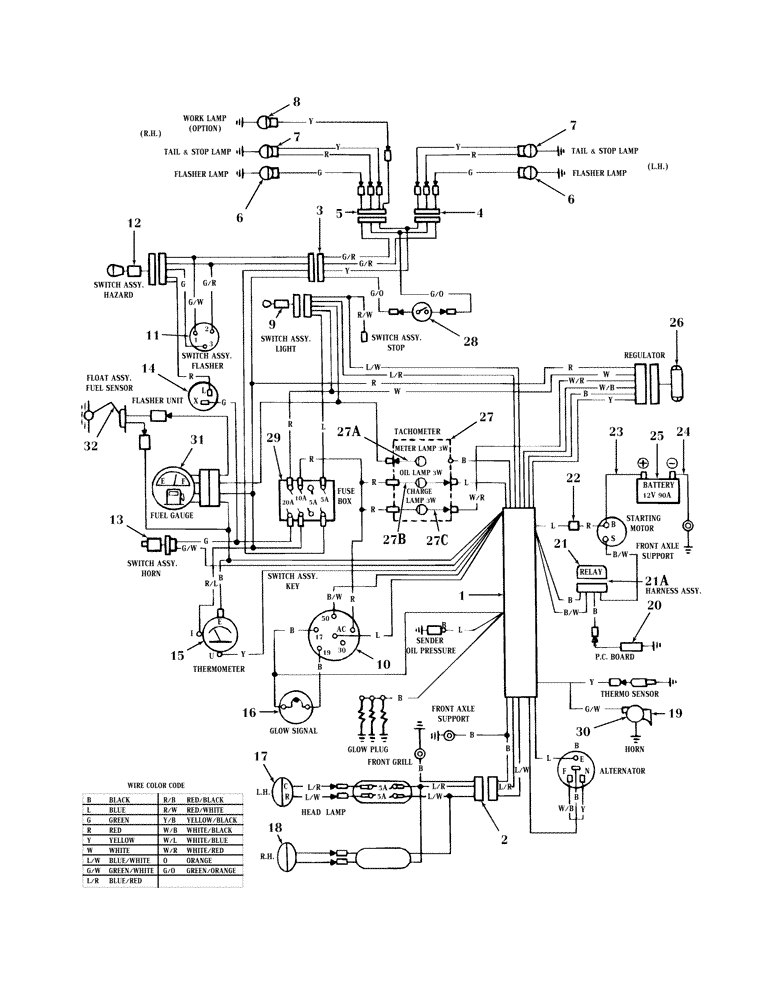When it comes to maintaining and repairing your Ford 1710 Tractor, having access to a detailed wiring diagram is essential. A Ford 1710 Tractor Wiring Diagram provides a visual representation of the electrical system in your tractor, helping you to understand how all the components are connected and how they work together. This article will guide you on how to effectively utilize and interpret a Ford 1710 Tractor Wiring Diagram.
Why Ford 1710 Tractor Wiring Diagram are essential
A Ford 1710 Tractor Wiring Diagram is essential for several reasons:
- It helps you understand the electrical system of your tractor
- It allows you to identify and troubleshoot electrical issues
- It serves as a guide for making repairs and modifications to the wiring system
How to read and interpret Ford 1710 Tractor Wiring Diagram effectively
Reading and interpreting a Ford 1710 Tractor Wiring Diagram may seem daunting at first, but with the right approach, it can be a valuable tool for maintenance and repairs. Here are some tips for effectively reading and interpreting a wiring diagram:
- Start by familiarizing yourself with the symbols and color codes used in the diagram
- Follow the flow of the wiring diagram to understand how the electrical components are connected
- Refer to the legend or key provided in the diagram to decipher any abbreviations or special symbols
How Ford 1710 Tractor Wiring Diagram are used for troubleshooting electrical problems
A Ford 1710 Tractor Wiring Diagram is a valuable tool for troubleshooting electrical problems in your tractor. Here’s how you can use the wiring diagram for troubleshooting:
- Identify the specific circuit or component that is malfunctioning
- Trace the wiring from the component back to the main electrical system using the wiring diagram
- Check for any breaks, loose connections, or short circuits along the wiring path
Importance of safety when working with electrical systems
When working with electrical systems and using wiring diagrams, safety should always be a top priority. Here are some safety tips and best practices to follow:
- Always disconnect the battery before working on any electrical components
- Use insulated tools to prevent electrical shocks
- Avoid working on electrical systems in wet or damp conditions
- If you are unsure about a particular electrical issue, seek professional help
Ford 1710 Tractor Wiring Diagram
Ford 1710 Tractor Parts Diagram – Wiring Site Resource

Ford 1710 tractor service repair manual

Wiring Diagram PDF: 1710 Ford New Holland Wiring Diagram

1710 ford tractor 12v wiring diagram
1984 Ford 1710 Wiring Diagram

wiring diagram for ford tractor
